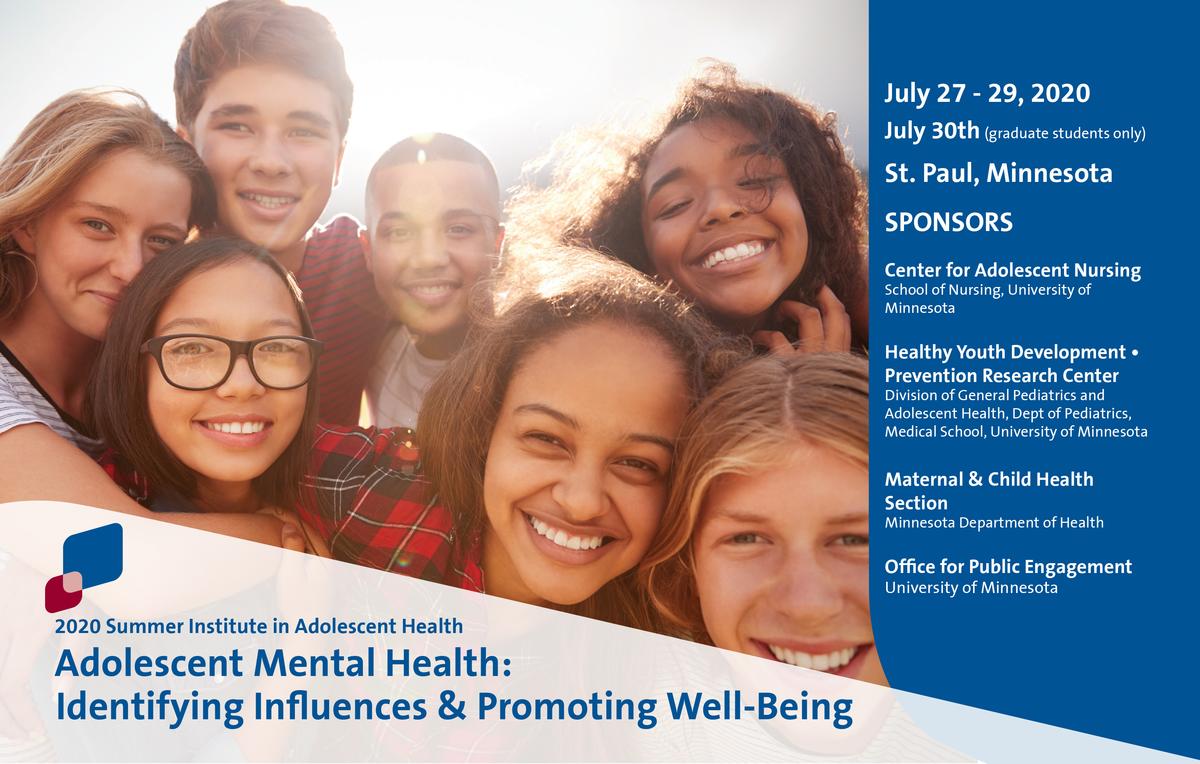
Shifting to Virtual Learning: 2020 Adolescent Health Summer Institute Moves Online.
Due to COVID-19, many of us are working, learning, and caring for others from home. For a sizable number of adolescents, these shifts have resulted in substantial mental health challenges. When the 2020 Summer Institute in Adolescent Health topic was selected in late 2019, “Adolescent Mental Health: Identifying Influences and Promoting Well-Being”, we had no idea how timely this topic would be during the summer of 2020.
Like other continuing education offerings in 2020, our Summer Institute was offered online, which provided both challenges and unique opportunities. We were able to double our number of participants, enrolling 120 youth-serving professionals from 18 different states who may not have been able to attend the institute in person. Through an online meeting platform, we engaged and learned from adolescent health experts from New York, Washington D.C., Georgia, and Washington state in addition to several Minnesota-based professionals. These experts helped us explore influences on adolescent mental health from health services, developmental, social-ecological, and equity perspectives. We examined ways in which families, schools, clinics, and communities can promote adolescent mental health. We explored how nature, green space and time outdoors can positively influence mental well-being. And we heard from adolescents, talking about local community initiatives they were leading to help reduce the stigma of mental health and increase mental well-being among young people in their communities.
“Our goal for this institute was to provide strategies for caring adults to help young people sustain and reclaim their mental well-being,” said Jill Farris, a member of the Summer Institute planning team. “With the shift to online learning, some of our teaching strategies needed to be adjusted and we employed techniques to replicate, to the best of our online abilities, the networking that routinely happens at our in-person event,” said Farris. Jenny Oliphant, also a member of the planning team and an expert in online learning was excited about the shift to an online platform. “Providing the institute virtually not only allowed us to reach a wider range of participants, it provided us with exciting opportunities to use virtual technology to engage learners in new ways,” stated Oliphant. The online platform also allowed us to hear from rural adolescents. “By holding the institute virtually, we were able to learn from young people leading mental health initiatives in greater Minnesota,” said Oliphant. “Without online technology, it would have been much more difficult to have these youth share their work us.”
Despite a few bumps that come with moving an in-person event to an online format, planning team member Renee Sieving, professor and director of the Healthy Youth Development – Prevention Research Center and Center for Adolescent Nursing, was very pleased with the outcomes. “This year’s Summer Institute highlighted a rich array of evidence-based practices and creative strategies to help young people sustain and reclaim their mental well-being. As an added benefit, participants could employ many of these strategies to positively influence their own mental well-being,” she said.